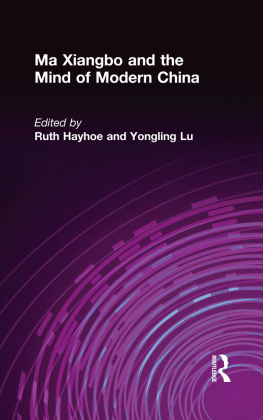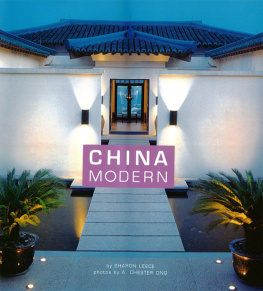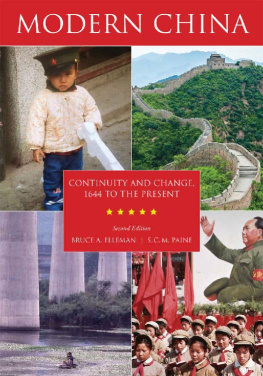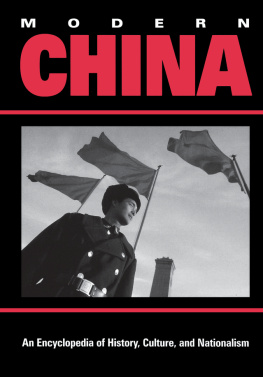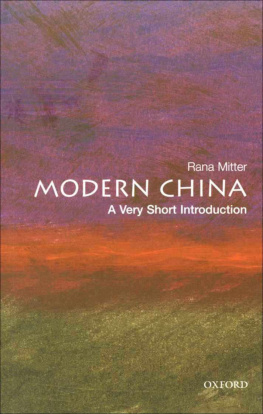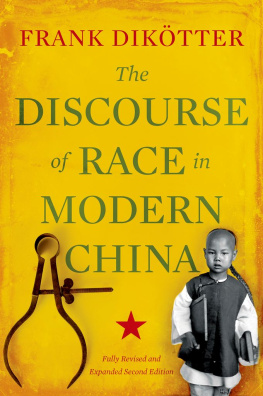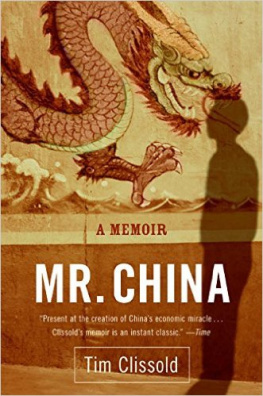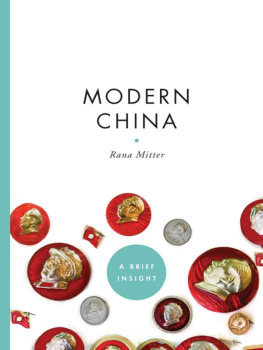 An East Gate Book
An East Gate BookFirst published 1996 by M.E. Sharpe
Published 2015 by Routledge
2 Park Square, Milton Park, Abingdon, Oxon OX14 4RN
711 Third Avenue, New York, NY 10017, USA
Routledge is an imprint of the Taylor & Francis Group, an informa business
Copyright 1996 Taylor & Francis. All rights reserved.
No part of this book may be reprinted or reproduced or utilised in any form or by any electronic, mechanical, or other means, now known or hereafter invented, including photocopying and recording, or in any information storage or retrieval system, without permission in writing from the publishers.
Notices
No responsibility is assumed by the publisher for any injury and/or damage to persons or property as a matter of products liability, negligence or otherwise, or from any use of operation of any methods, products, instructions or ideas contained in the material herein.
Practitioners and researchers must always rely on their own experience and knowledge in evaluating and using any information, methods, compounds, or experiments described herein. In using such information or methods they should be mindful of their own safety and the safety of others, including parties for whom they have a professional responsibility.
Product or corporate names may be trademarks or registered trademarks, and are used only for identification and explanation without intent to infringe.
Library of Congress Cataloging-in-Publication Data
Ma Xiangbo and the mind of modern China / edited by Ruth Hayhoe and Lu Yungling.
p. cm.
An East gate book.
Includes index.
ISBN 1-56324-831-X (hardcover : alk. paper)
I. Ma, Liang, 18401939.
2. ScholarsChinaBiography.
I. Hayhoe, Ruth.
II. Lu, Yungling, 1962
CT3990.M3M32 1996
951.04092dc20
[B]
95-52845
CIP
ISBN 13: 9781563248313 (hbk)
by Ruth Hayhoe
My interest in Ma Xiangbo goes back to the late seventies, when I was reflecting on a topic for a doctoral thesis, and came upon the story of the conflict between Ma and the French Jesuits at Aurora University (Zhendan) in 1905, which led to the creation of Fudan University. This story seemed to provide a kind of microcosm of the value conflicts between Chinese and European ideas of scholarship and scholarly institutions, and I can clearly remember the sense of intrigue it aroused in my mind. Since I was studying Comparative Education, rather than Sinology, I went on to pursue the broad theme of Western influences on the emergence of universities in China over the whole modern period in my doctoral thesis. However, I never lost interest in some of the specific details of the history of Zhendan and Fudan, and published one or two articles on how it illustrated some of the dilemmas surrounding the introduction of the Western concept of the university into Chinese cultural soil.
In 1987 I had the pleasure of meeting Father Edward Malatesta of the University of San Francisco, and he urged me to consider taking up the subject once again. As we discussed the many dimensions of Ma Xiangbos long life, from 1840 to 1939, we realised that he could be seen as a kind of Xu Guangqi of the modern period, and that a careful study of his life and thought would be invaluable for understanding Chinese Catholic thought in the modern period. Whereas considerable research has been done around encounters between the 16th and 17th century Jesuits and the Chinese intellectual community, also around Protestant Christianity and its impact on Chinese intellectual life in the 19th and 20th centuries, there seemed to be little written on Catholicism in the modern period. This was partly due to the fact that 19th century Catholic missionaries were in many ways outshone by their Protestant contemporaries, also that few among them had the kind of vision for cultural cooperation that had characterized Matteo Ricci and his confreres and successors. However, Ma Xiangbo was a modern Catholic figure who been inspired by the work of the early Jesuits and their Chinese converts in his own cultural and spiritual struggle for authenticity and autonomy in Chinas modernization process. He had also given considerable effort to ensuring the re-publication of many of their works.
Mas life and work was in many ways characteristic of the last generation of Chinas traditional literati to which he belonged. Never a specialist, nor a professional in the modern sense, his interests were wide-ranging and led to extensive involvement in political life in different periods, a sustained commitment to higher education, as well as an active public role in circles of the Catholic Church. Born in 1840 to a prominent Jiangnan family, which had been Catholic since the time of Matteo Ricci, he was first educated in the classics in traditional private schools, then went to Shanghai at the age of 11 to enrol in the newly opened Jesuit college, St. Ignace. His years at St. Ignace, from 1851 to 1870, laid the foundation in education and thought for what was to be a century-long effort to bring together Chinese and European culture at a basic level.
As a student, he was invited to teach classical Chinese literature and philosophy, while being educated in Latin, Greek, mathematics, philosophy and the full range of Western subjects up to the doctoral level. As a seminarian, from 18621870, he participated in both theological training and the spiritual formation brought about by various disciplines and assignments. Finally, as principal of the college from 1871 to 1875, he was in a position to shape the educational process in such a way as to expose students to the fundamentals of Chinese and European classical knowledge.
Throughout this whole process, Ma Xiangbo had the full support of his family, particularly his devout mother who was proud to have two sons in the priesthood. His younger brother, Ma Jianzhong, studied in the seminary together with him for a time, yet left before ordination, due to conflicts with the French priests over what he viewed as racial prejudice in the treatment of Chinese members. Ma Jianzhong subsequently joined the secretariat of Li Hongzhang, became the first Chinese to gain a doctorate in France (at the Institut des Etudes Politiques),1 and had a distinguished career in diplomacy and the leadership of various state enterprises under Li Hongzhang, up to his premature death at the age of 56 in 1900.2 Mas older brother, Ma Jianxun, is less well known, yet it was his military career within the Huai faction under Li Hongzhang that enabled the family to maintain and enhance its status and wealth over the period when his two younger brothers were undergoing their lengthy education in Western learning.
Mas decision to leave the Jesuits in 1876 was supported by his brothers, especially Ma Jianxun, who assisted him in leaving, as an expression of protest against the arrogance of the French fathers towards China, an arrogance that seemed to grow with the increasing exposure of Chinas weakness in face of Europe and Japan. The next phase of Mas life, from 1876 to 1898 was taken up with a series of minor positions in diplomatic and industrial circles, largely within the sphere of Li Hongzhangs influence, and under the shadow of his more illustrious younger brother, Ma Jianzhong.3 His trip to the U.S. and Europe in 1887 enabled him to observe, at first hand, the societies whose cultural roots he had studied in the many years of Western education, and left him with a strong sense of how much more was yet to be done in the educational field in China, before the type of governmental projects he had been engaged in could bear lasting fruit.


